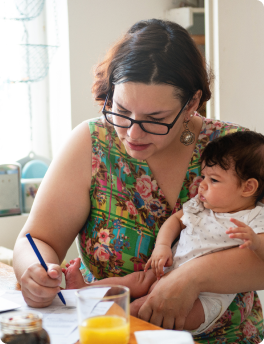How to Build and Maintain Healthy Relationships
Healthy relationships are key to our mental wellbeing. Here are some tips on how to build and maintain a healthy relationship.

Contents
One in two Australians have reported feeling more lonely since the COVID-19 pandemic began. This is a considerable increase from one in four Australians in 2018. So what do these statistics tell us? They highlight the importance of relationships to our mental wellbeing. Humans are social beings.
Whether it’s face-to-face or through social media, we’re always interacting with other humans. But are all interactions and relationships beneficial for our mental wellbeing? Relationship quality is important.
The extent of this quality can indicate how healthy your relationships are.
So what does a healthy relationship look like? And how can we develop and maintain a healthy relationship?
What does a healthy relationship look like?
What do you perceive as the core dynamics of a healthy relationship? Are they elements that are present in your current relationships with family, friends and colleagues? What could you or the other person do differently to enhance the relationship?
These are meaningful questions that help us better understand our network of relationships. Addressing these questions can help improve your mental wellbeing.
There are no definitive criteria for a healthy relationship. However, there are many facets that can be indicative of a relationship’s health status.
These facets centre on one key element — both people should benefit from being part of the relationship. Though we’re about to address the green light signals of healthy relationships, this isn’t an exhaustive list. There are many hallmarks of a healthy relationship.
Typically, they fall into one of two categories: relationship development and relationship maintenance.
How to build healthy relationships
Relationship development is about identifying prospective connections and strengthening them. Everyone has their own way of developing relationships.
Some may find it easy to connect with anyone and everyone. Others may find it overwhelming.
Surround yourself with positive people
Ever thought to yourself, “this person is so negative!”? Chances are you probably have. If so, this may be a sign that the other person is a less-than-ideal candidate to build a healthy relationship with.
Having negative people around you can be exhausting. Think of every negative relationship as a 15kg boulder; the more negative people you have around you, the more weight you have to carry around. So why should you carry these boulders around with you? Wouldn’t you feel more at ease without them?
Now imagine that every positive person in your life represents a gold coin in your piggy bank. The more gold coins you have, the more your wealth increases.
See the difference? Negative people can weigh you down, while positive people can provide you with added value.
So how can you identify the typical characteristics of a positive person? Well, a positive person will more often focus on your strengths. Instead of being critical, they will also be helpful. This means that they’ll take active steps to lift you up as a person instead of trying to pull you down.
A positive person may also be optimistic about the future. Rather than be threatened by obstacles, they may look to them as challenges that can be overcome. Having a holistic perspective on life like this can be a beneficial approach for everyone.
An open pair of ears
Some people love to talk but not listen — and ear wax is not always to blame! There is no worse feeling than not being heard; this can be even more disheartening when trying to express your emotions or feelings to someone. This is why listening skills are crucial to the development of a healthy relationship.
To be listened to means to be validated; your feelings or point of view have been acknowledged and accepted. Forming a relationship with a good listener can also create a safe communication pathway. A good listener will make you as the speaker feel more comfortable in expressing yourself.
So what are the signs of a good listener? For starters, a good listener will acknowledge your turn to speak in the conversation. They also won’t interrupt you when you’re speaking. If they do interrupt you, it might be to ask you to repeat yourself.
If it’s not because of this then interruption may be a sign that they care more about being heard, than hearing you.
Practising positive body language
Another key sign to look out for is eye contact and body language. You’re more likely to feel heard if the other person is directly looking at your face. A good listener will also nod their head and maintain an upright body posture when you’re speaking.
Finally, once you as the speaker have finished talking, a good listener will summarise or paraphrase what you’ve said. This is the most explicit indicator of knowing whether you’ve been heard.
If you have been successful in developing a healthy relationship, you can now work on maintaining it by practising good relationship virtues.
How to maintain healthy relationships
You can think of relationship maintenance as nourishing a plant. The roots are already there, the plant has grown, and the flower is blooming.
The next step is to ensure it stays healthy. How do you do this? You continue to water it and make sure it gets enough time in the sun.
The same can be said about maintaining a healthy human-to-human relationship. The key word here is ‘attention’. It’s important that everyone gives each other the same amount of attention.
A relationship is not a one-way street; you should give as much as you take from it.
So how can you show this attention to your family, friends, and colleagues? By showing respect, reciprocating other people’s good deeds and communicating openly.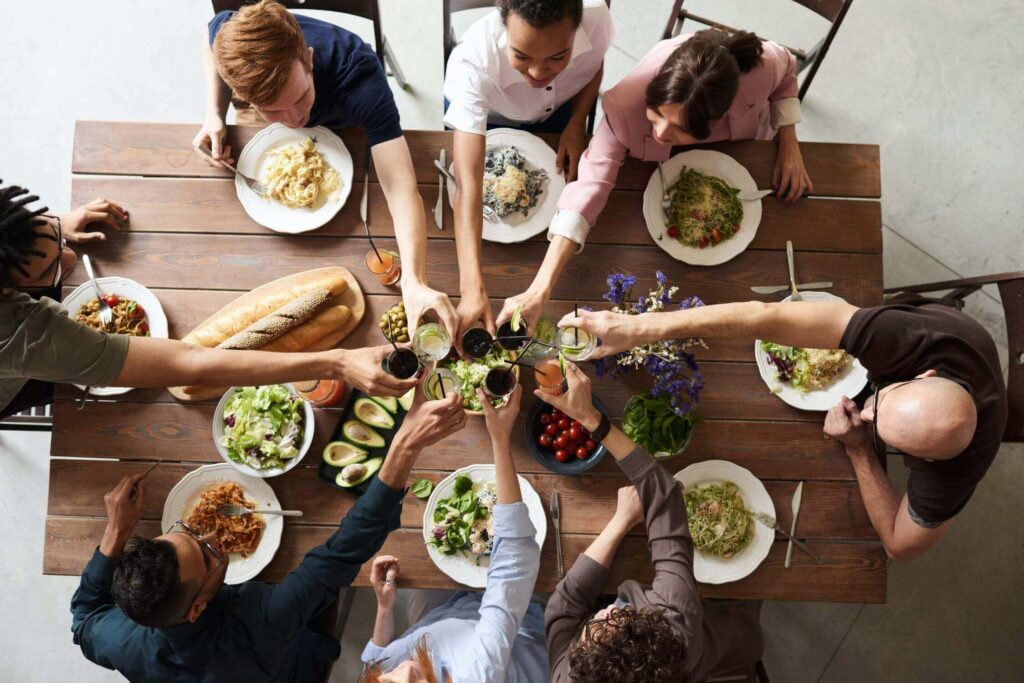
Respect
Having respect for others stems from your core beliefs and values. If you value diversity, then you will likely treat all people equally and fairly. How a person treats you can tell you a lot about their character and relationship material. Respect is about embracing individual differences.
This means that you equally value the other person’s opinions and feelings.
Empathy
Empathy is an important characteristic of respect. Empathy is the ability to put yourself in another person’s shoes; you are able to understand that person for who they are. So how can you identify if your relationship possesses empathy and respect?
We know that listening skills are vital. Someone that listens is someone that appreciates your opinions, regardless if it differs to theirs. A good listener will also show curiosity about what you’re saying.
They might ask more questions about you, in the hope of better understanding your unique experiences or perspectives. This might come across as being invasive but usually, if your relationship is built on rapport, sharing personal information may come easier.
Listening and curiosity have one thing in common; they are both ways of signalling your attention to the other person in the relationship.
Reciprocity
A relationship is a two-way street; it’s important that both people benefit equally from the relationship. Reciprocity ensures that a person gives as much as they take from the relationship.
Showing reciprocity can demonstrate your investment in the relationship and your commitment to helping the other person.
Returning the favour is an example of reciprocity. If your work colleague pays for your lunch on Tuesday, then you might pay for theirs the following day. Confiding in each other is also a display of reciprocity and is a sign of a trusting relationship.
Regardless if it’s tangible or intangible, reciprocation is a key element of maintaining healthy relationships.
Honesty
The final facet of maintaining a healthy relationship is to speak the truth. Honesty is a key element when communicating openly. If you’re unsure if someone is being honest, you can look for consistency in their words and actions.
The values they preach should consistently align with how they treat you and others.
An honest person is a trustworthy person — what you see is what you get.
Wrap-up
A healthy relationship is one that benefits you as much as it does the other person. Whilst there are no specific criteria to determine what constitutes a healthy relationship, it’s important that the people you invest your time in have a positive impact on your life.
To maintain healthy relationships, be honest and respectful of each other. And don’t forget to give as much as you take.
Finally, if you’re feeling isolated, you’re not alone. There is plenty of support just around the corner.
Related Resources
-
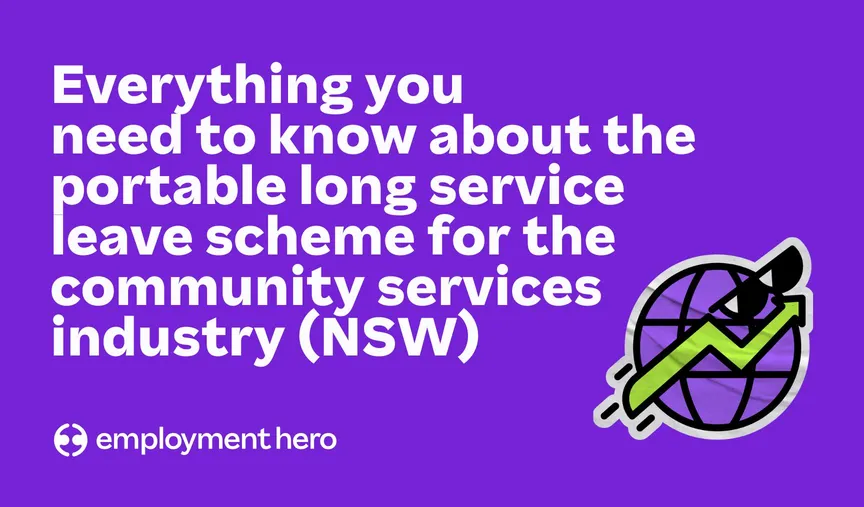 Read more: NSW Government introduces Portable Long Service Scheme for the Community Services Industry
Read more: NSW Government introduces Portable Long Service Scheme for the Community Services IndustryNSW Government introduces Portable Long Service Scheme for the Community Services Industry
The NSW Government has introduced portable long service leave for the community services industry. Learn what it is and what…
-
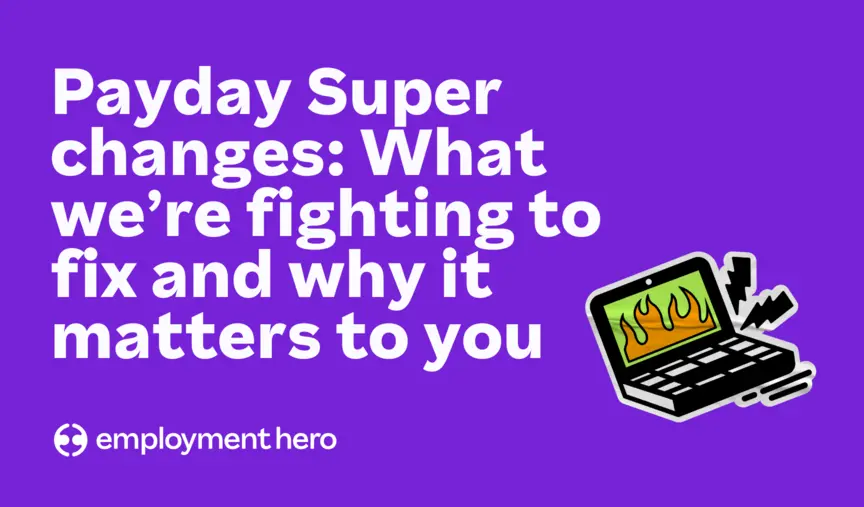 Read more: Payday Super changes: What we’re fighting to fix and why it matters to you
Read more: Payday Super changes: What we’re fighting to fix and why it matters to youPayday Super changes: What we’re fighting to fix and why it matters to you
Big changes are coming to how superannuation is paid in Australia. Here’s what we’re asking Treasury to seriously consider updating…
-
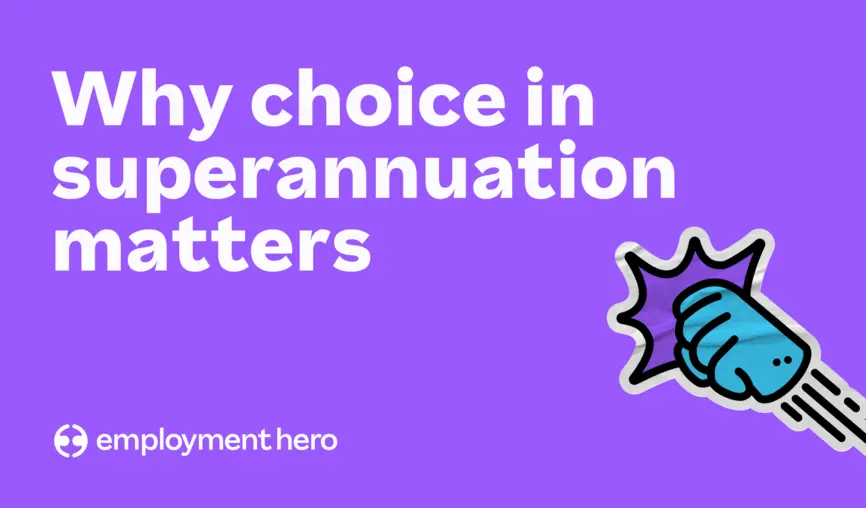 Read more: Why choice in superannuation matters
Read more: Why choice in superannuation mattersWhy choice in superannuation matters
What could be coming when Payday Super hits and what Employment Hero is doing about it.




